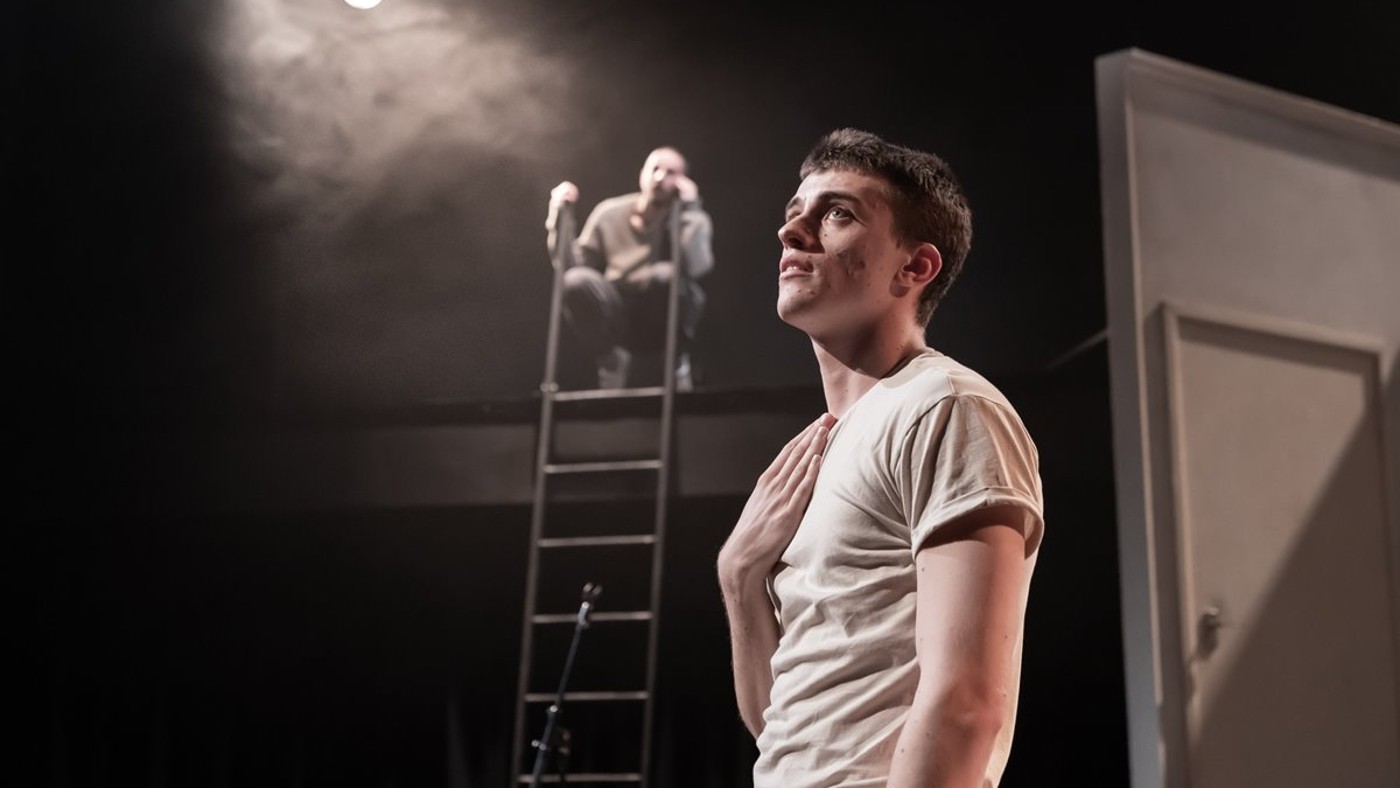Kes review: a play that’s both bleak and brilliant
Atri Banerjee’s adaptation of the 1968 novel features just three actors on a simple set

A free daily email with the biggest news stories of the day – and the best features from TheWeek.com
You are now subscribed
Your newsletter sign-up was successful
Any stage adaptation of Barry Hines’s 1968 novel A Kestrel for a Knave faces considerable challenges, said Chris Bartlett in The Stage. It’s not just that Ken Loach’s 1969 film version, Kes, is “seared onto the memories of a generation of cinemagoers”, so expectations for this “most iconic of British coming-of-age stories” will always be sky-high. It’s also that the story hinges on the intense bond between a 15-year-old boy and a live kestrel.
However, Atri Banerjee’s visually arresting and “coherently realised” staging solves that problem by never actually showing us the titular bird. Kes is talked about, in evocative passages where the young Billy explains how he found and trained the kestrel; meanwhile its movements are represented onstage by Nishla Smith, whose hauntingly beautiful singing voice – on versions of 1960s standards such as The Girl from Ipanema – also expresses the characters’ hopes and desires.
The brisk one-hour staging, featuring just three actors on a simple set, is more a “poetic evocation” of Kes than a “slavish” adaptation, said Mark Fisher in The Guardian. We get all the famous scenes of sadistic teachers and misplaced bets, but not always in the order we expect. And if we don’t quite get the “full force of Billy’s innocent appreciation of the bird”, we certainly do feel moved by the absence of Kes/Smith at the culmination of what is a “bold and adventurous ensemble production”.
The Week
Escape your echo chamber. Get the facts behind the news, plus analysis from multiple perspectives.

Sign up for The Week's Free Newsletters
From our morning news briefing to a weekly Good News Newsletter, get the best of The Week delivered directly to your inbox.
From our morning news briefing to a weekly Good News Newsletter, get the best of The Week delivered directly to your inbox.
The actors are first-rate and their accents are properly “Barnsley-authentic”, said Neal Keeling in the Manchester Evening News. Jake Dunn brings “energy and fragility” to the role of the angry, abused, neglected Billy – and also conveys his “wide-eyed fear and wonder” when he realises, thanks to Kes, that escape is possible from a “dirty grey life”. In a tour-de-force performance, Harry Egan plays multiple parts, including Billy’s thuggish brother and the sadistic PE teacher Mr Sugden (played by Brian Glover in the film). And Smith’s “haunting, ethereal” interludes shower hope over the grim reality of Billy’s life. It’s a bleak play, but brilliant.
Octagon Theatre, Bolton, until 2 April, then Theatre by the Lake, Keswick, 6-30 April
A free daily email with the biggest news stories of the day – and the best features from TheWeek.com
-
 The environmental cost of GLP-1s
The environmental cost of GLP-1sThe explainer Producing the drugs is a dirty process
-
 Nuuk becomes ground zero for Greenland’s diplomatic straits
Nuuk becomes ground zero for Greenland’s diplomatic straitsIN THE SPOTLIGHT A flurry of new consular activity in the remote Danish protectorate shows how important Greenland has become to Europeans’ anxiety about American imperialism
-
 ‘This is something that happens all too often’
‘This is something that happens all too often’Instant Opinion Opinion, comment and editorials of the day
-
 Arcadia: Tom Stoppard’s ‘masterpiece’ makes a ‘triumphant’ return
Arcadia: Tom Stoppard’s ‘masterpiece’ makes a ‘triumphant’ returnThe Week Recommends Carrie Cracknell’s revival at the Old Vic ‘grips like a thriller’
-
 My Father’s Shadow: a ‘magically nimble’ love letter to Lagos
My Father’s Shadow: a ‘magically nimble’ love letter to LagosThe Week Recommends Akinola Davies Jr’s touching and ‘tender’ tale of two brothers in 1990s Nigeria
-
 Send Help: Sam Raimi’s ‘compelling’ plane-crash survival thriller
Send Help: Sam Raimi’s ‘compelling’ plane-crash survival thrillerThe Week Recommends Rachel McAdams stars as an office worker who gets stranded on a desert island with her boss
-
 Book reviews: ‘Hated by All the Right People: Tucker Carlson and the Unraveling of the Conservative Mind’ and ‘Football’
Book reviews: ‘Hated by All the Right People: Tucker Carlson and the Unraveling of the Conservative Mind’ and ‘Football’Feature A right-wing pundit’s transformations and a closer look at one of America’s favorite sports
-
 Catherine O'Hara: The madcap actress who sparkled on ‘SCTV’ and ‘Schitt’s Creek’
Catherine O'Hara: The madcap actress who sparkled on ‘SCTV’ and ‘Schitt’s Creek’Feature O'Hara cracked up audiences for more than 50 years
-
 6 gorgeous homes in warm climes
6 gorgeous homes in warm climesFeature Featuring a Spanish Revival in Tucson and Richard Neutra-designed modernist home in Los Angeles
-
 Touring the vineyards of southern Bolivia
Touring the vineyards of southern BoliviaThe Week Recommends Strongly reminiscent of Andalusia, these vineyards cut deep into the country’s southwest
-
 Nan Goldin: The Ballad of Sexual Dependency – an ‘engrossing’ exhibition
Nan Goldin: The Ballad of Sexual Dependency – an ‘engrossing’ exhibitionThe Week Recommends All 126 images from the American photographer’s ‘influential’ photobook have come to the UK for the first time